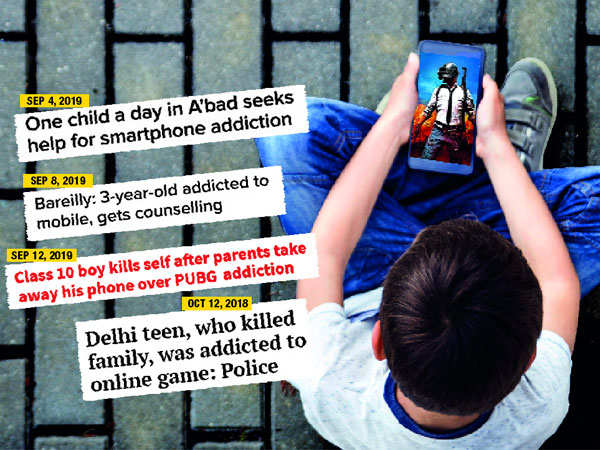Tara, who is five years old, spends around seven to eight hours a day on technologies such as her phone, laptop, and television, which has been a source of concern for her parents.
Tara’s virtual exposure, which began with online schooling last year, has become such an addiction for her that she becomes aggressive anytime her parents turn off the TV or take away her phone. She begins to toss things, shout, and cry aloud.
Tara’s mother, V Shravani, an IT employee, has begun taking her to a child psychologist after seeing her behavior. Obviously, Tara’s isn’t the only example of this kind throughout the epidemic.
Screen usage has escalated to the point that it is impeding young children’s general development and negatively impacting their mental health. Increased screen usage, according to mental health specialists, has a negative impact on the development of linguistic, cognitive, social, and interpersonal abilities in pre-school children.
“We shall have a generation of children that have no idea how to communicate with others. Kids don’t attend to school, and many don’t even go outdoors to play because of the epidemic; instead, they spend all of their time with their electronics. Because the youngsters aren’t connecting with others, their curious nature isn’t being explored; this will have an impact on their social, emotional, and cognitive development “Dr. Poorna Chandrika, the Institute of Mental Health’s director, said (IMH).
She went on to say that too much screen usage in children under the age of five can cause emotional, sleep, and behavioral problems. It may also promote isolation at an early age, according to mental health specialists, which can lead to future concerns such as increased anxiety and even depression. “I recently got a four-year-old kid who had not eaten for two days because his iPad had broken,” Dr. Lakshmi Vijayakumar, a psychologist based in Chennai, said.
“He had just smashed the device in a fit of rage because he didn’t want to share it with his friend.” Parents tried all they could to get the youngster to eat, but he refused, so they came to see me. Such situations are quite concerning since they can lead to major behavioral issues later in the child’s life.
She went on to say that, compared to previous year, the number of her pre-school patients has grown, as has the severity of their mental health difficulties. During the epidemic, children were given increased access to gadgets by their parents, who saw it as a simple way to keep their children occupied.







